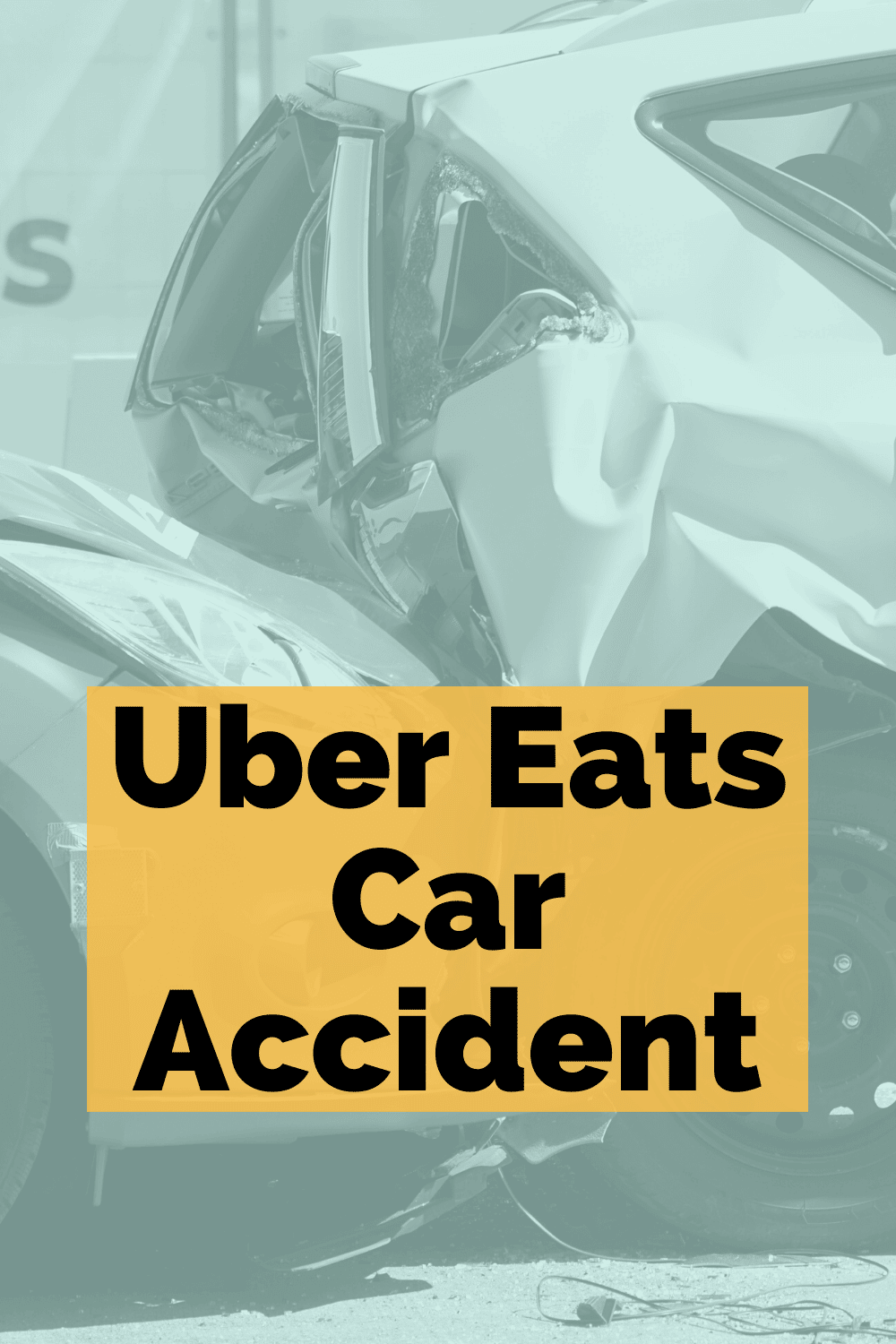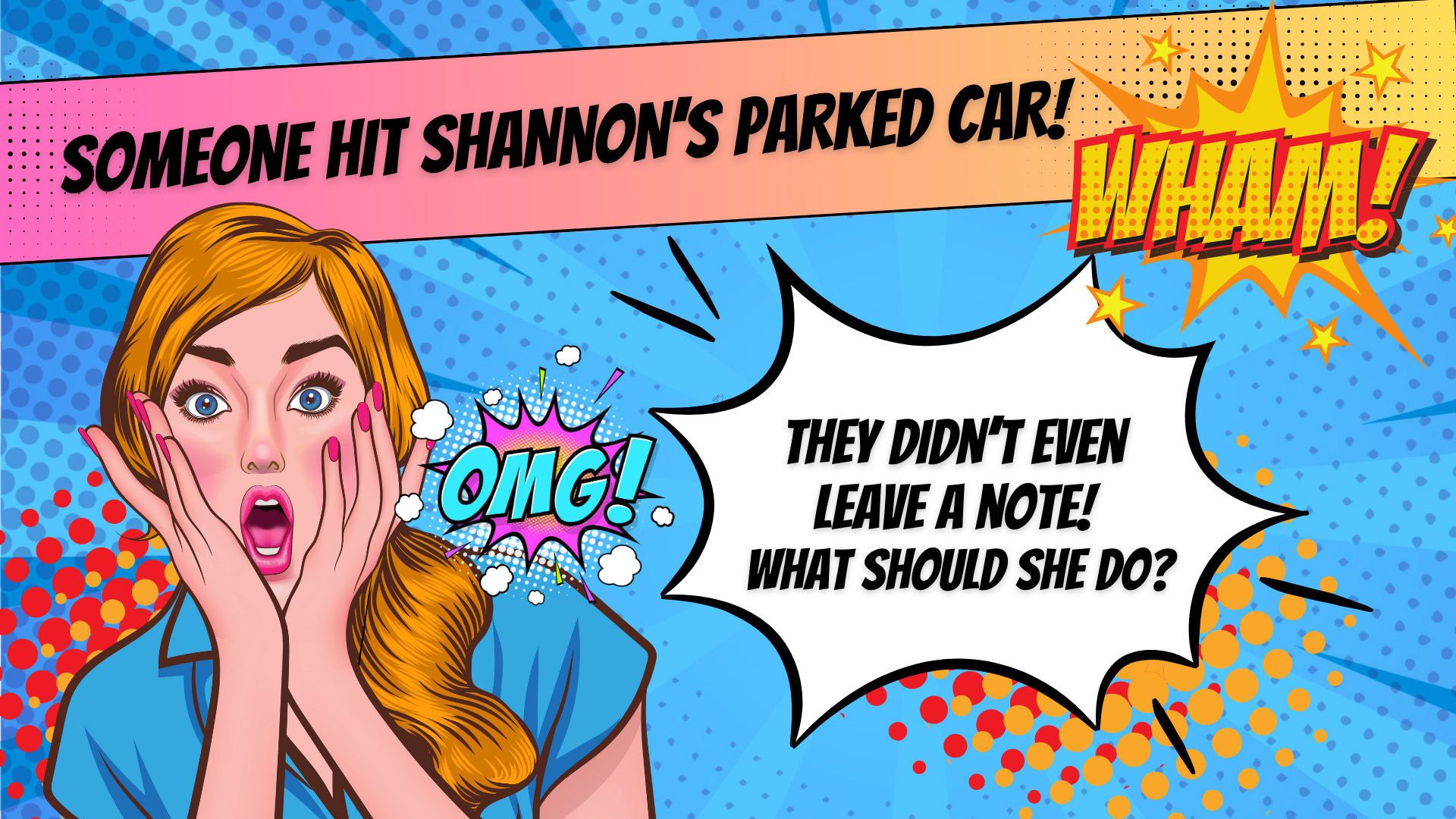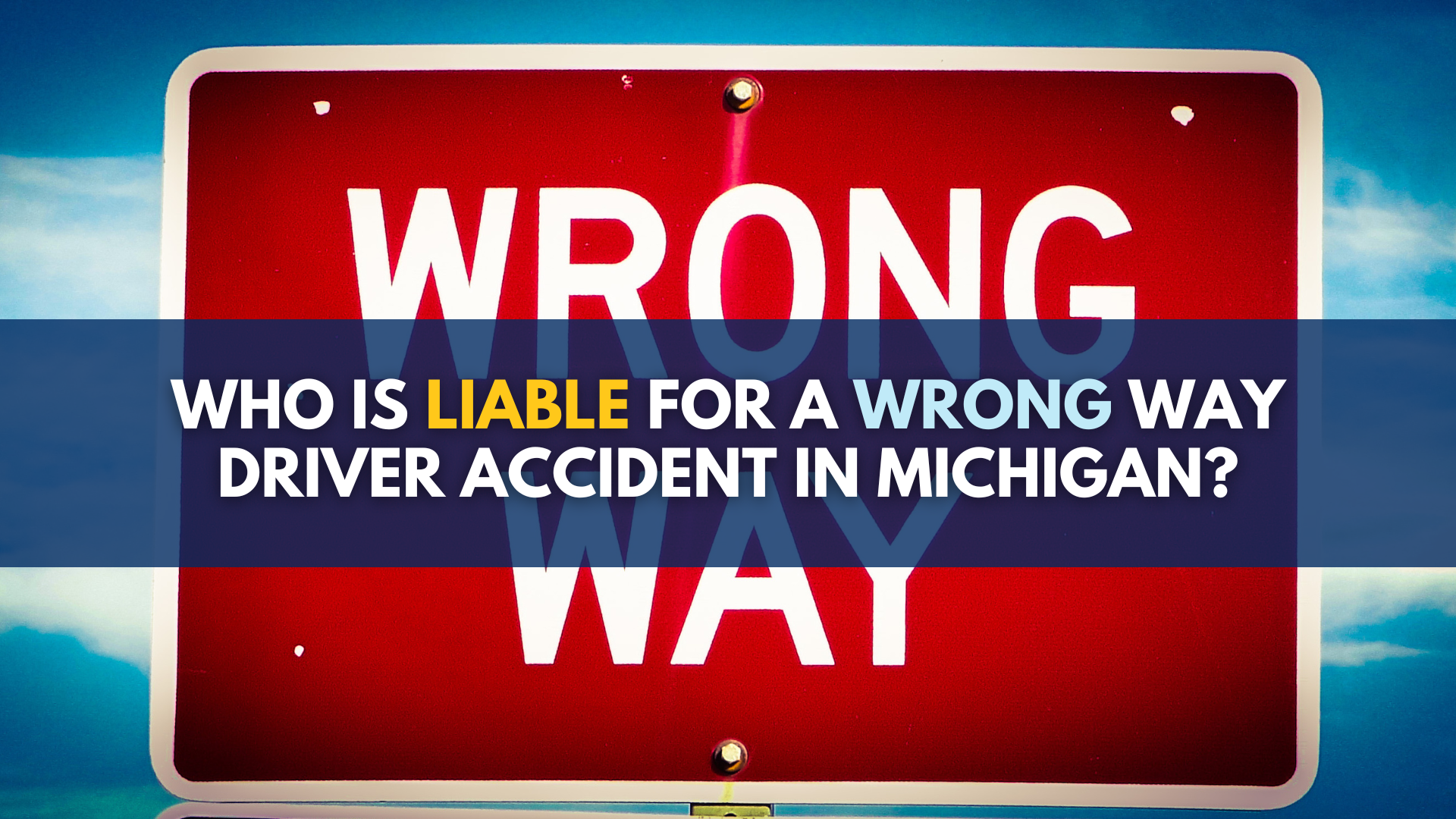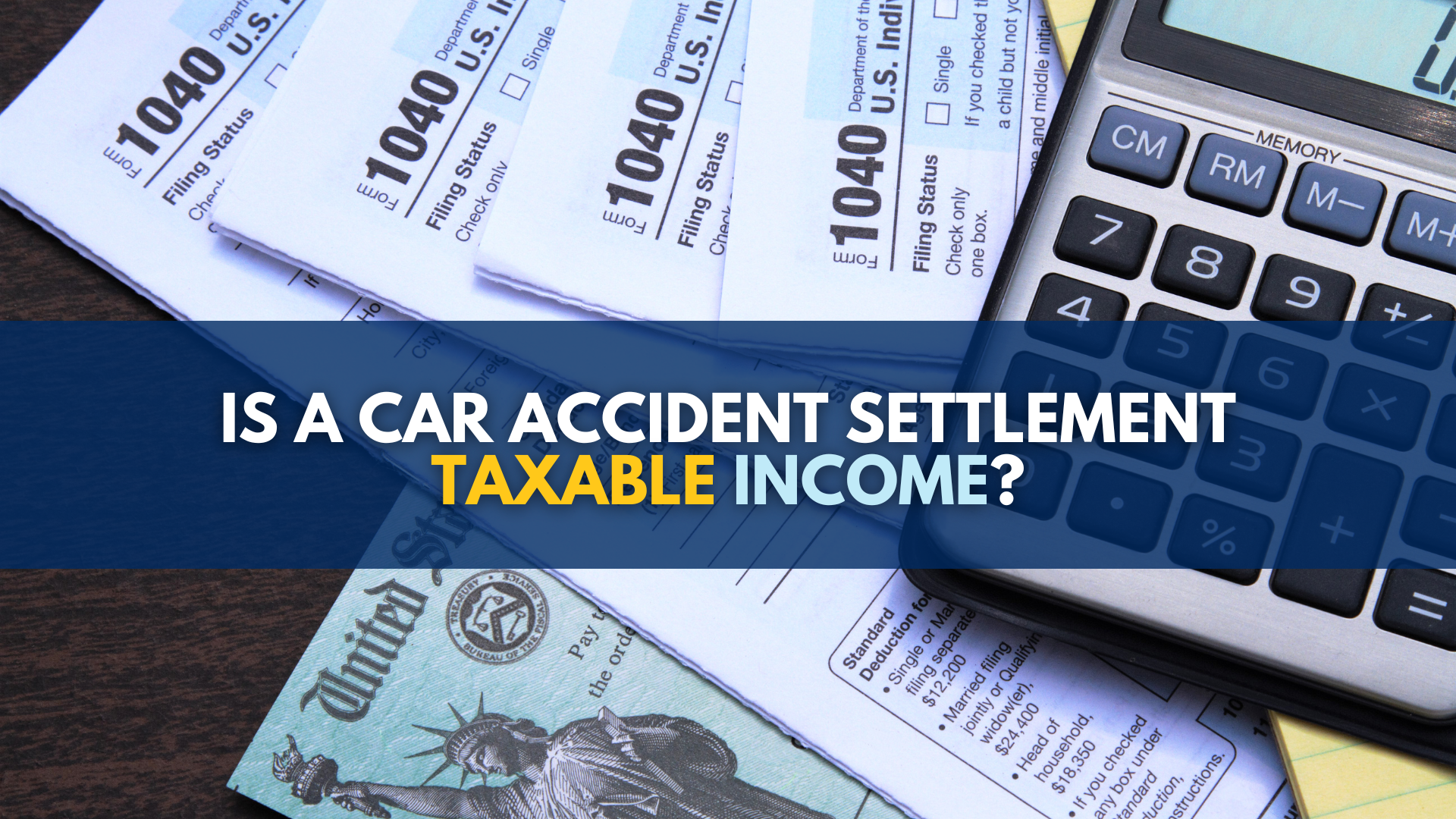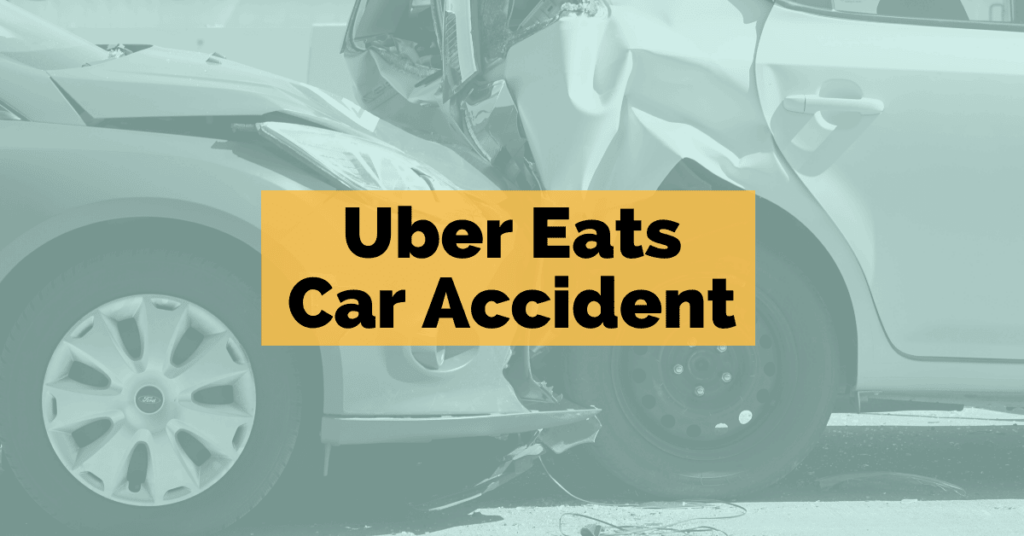
The two most important issues you need to know about after an Uber Eats car accident in Michigan are: (1) how to recover No-Fault benefits to pay for your medical bills if you’ve been injured; and (2) how to recover pain and suffering compensation and other economic loss damages from an at-fault Uber Eats driver.
In your personal injury case for pain and suffering compensation from an Uber Eats car accident, you may also be able to recover excess medical expenses and excess lost wages.
About Uber Eats car accident claims
Michigan law does not yet specify whether an Uber Eats driver is considered a “transportation network company driver” or a regular delivery driver for delivery services like Grubhub and DoorDash for purposes of insurance claims.
For motor vehicle crash victims seeking No-Fault PIP benefits, this is fortunately a distinction without a difference as it will not affect their ability to apply for and recover No-Fault insurance benefits.
However, as I discuss in detail below, the distinction between an Uber Eats driver being classified as a “transportation network company driver” or as a regular delivery driver does have important legal significance and may affect how much liability insurance coverage is available for you after your crash. This area of law is evolving quickly with the rapid expansion of our “Gig Economy” and can have important ramifications on how much insurance there will be for pain and suffering, excess economic losses and the potential defendants who will be liable to pay for your personal injuries.
No-Fault benefits
You are able to file a No-Fault lawsuit for unpaid No-Fault benefits to pay for your medical expenses and lost wages after an Uber Eats car accident in Michigan if the auto insurance company that is responsible for paying your benefits has denied your claim and refuses to pay.
Here how it works:
- After an Uber Eats car accident in Michigan, No-Fault PIP insurance benefits pay for an automobile crash victim’s medical expenses, lost wages, medical mileage (transportation expenses for traveling to and from doctor and medical appointments), household replacement services and attendant care services.
- To be entitled to recover No-Fault insurance benefits, also known as PIP benefits, after you have been injured in an Uber Eats car accident in Michigan, you must file an application for No-Fault benefits – which is also called your “written notice of injury” – with the responsible auto insurance company within one (1) year after the crash. (MCL 500.3145(1) and (4)) If you fail to file your application on time – within ONE YEAR from the date of your automobile crash – then you will be forever disqualified from recovering any benefits to which you might have otherwise been entitled.
- If your auto insurance company has refused to pay your No-Fault PIP benefits after an Uber Eats car accident in Michigan, your lawsuit for unpaid, overdue No-Fault insurance benefits must be filed within one year from the date that the medical bill, wage loss, medical mileage, replacement service or attendant service was incurred. (MCL 500.3145(2)) If such a claim is not filed within the one-year time period, then the bill will be time-barred and you will lose all rights to payment and/or reimbursement for the overdue benefits.
What insurance company pays No-Fault benefits after an Uber Eats car accident in Michigan?
Generally, if you have been injured in an Uber Eats car accident in Michigan, you will seek No-Fault benefits from auto insurance companies in the following order of priority: (1) Your own auto insurance company; (2) the auto insurance company for your spouse or a relative who lives in your home; or (3) if No-Fault coverage is not available through any of those sources, then you would seek No-Fault benefits through the Michigan Assigned Claims Plan. (MCL 500.3114(1) and (4))
Liability when Uber Eats driver causes a car accident
When the Uber Eats driver is at-fault for causing a Uber Eats car accident in Michigan, then the driver is going to be liable for paying any compensation, benefits or damages that are owed to victims of the crash.
If the Uber Eats driver is determined to be an employee of Uber Eats, then Uber Eats will also be liable – along with the driver – under the “respondeat superior” doctrine which makes an employer liable for its employee’s negligence that occurs within the scope of the employee’s employment.
However, if the Uber Eats driver is determined to be an independent contractor and, thus, not an employee of Uber Eats, then the driver would be liable and any compensation, benefits or damages that he or she owes would largely be paid from the at-fault Uber Eats driver’s own liability insurance coverage.
Uber Eats car accident compensation
Your compensation after an Uber Eats car accident may take several forms. If you have suffered a “serious impairment of body function,” then you can sue the at-fault Uber Eats driver for pain and suffering compensation as well as “excess” lost wages and medical bills, and other economic damages.
Pain and suffering compensation will cover: (1) physical pain and suffering; (2) mental anguish; (3) fright and shock; (4) denial of social pleasure and enjoyments; (5) embarrassment, humiliation or mortification; and (6) shame, mental pain and anxiety.
Excess lost wages cover your wage loss that exceeds the monthly maximum and/or beyond the three-year limit on No-Fault wage loss benefits.
Excess medical bills cover the cost of medical care that exceeds the No-Fault PIP medical benefits coverage level that was selected in the auto insurance policy through which you are claiming No-Fault benefits.
When a victim’s accident-related medical expenses exceed the coverage level in the policy under which he or she is claiming No-Fault benefits, the victim has the legal right to sue the at-fault driver for those “excess” medical expense costs. (MCL 500.3135(3)(c))
About Uber Eats accident Insurance
If the at-fault Uber Eats driver who causes the Uber Eats car accident in Michigan is determined to be a “transportation network company driver,” then he or she will be required by law to carry liability insurance coverage with the following limits:
- On-duty liability ($50,000/$100,000) – There must be liability coverage “in the amount of at least $50,000.00 per person for death or bodily injury” and “$100,000.00 per incident for death or bodily injury . . .” (MCL 257.2123(2)(a); 257.518b(1)(a)(i))
- Liability while transporting passengers ($1 million) – There must be liability coverage “with a minimum combined single limit of $1,000,000.00 for all bodily injury or property damage.” (MCL 257.2123(3)(a); 257.518b(1)(b)(i))
Assuming the Uber Eats driver is a “transportation network company driver,” this liability coverage may be provided by auto insurance liability policies maintained by the Uber Eats driver, Uber Eats or a combination of both. (MCL 257.2123(5) and (6))
A “transportation network company driver” is someone who receives “connections to potential passengers and related services from a transportation network company” and uses his or her “personal vehicle to offer or provide transportation network company prearranged rides . . .” (MCL 257.2102(n); 257.76b)
Liability insurance coverage for a delivery driver
If the at-fault Uber Eats driver who causes the Uber Eats car accident in Michigan is determined to be a regular delivery driver – not a “transportation network company driver” – then the extent of his or her liability insurance coverage will be the limits he or she has selected in the auto insurance policy covering the personal vehicle he or she is using to drive for Uber Eats.
Michigan’s auto law requires all Michigan drivers to carry liability insurance coverage with the following minimum limits:
- “[N]ot less than $250,000.00 because of bodily injury to or death of 1 person in any 1 accident.” (MCL 500.3101(1); 500.3131(2); 500.3009(1)(a))
- “[N]ot less than $500,000.00 because of bodily injury to or death of 2 or more persons in any 1 accident.” (MCL 500.3101(1); 500.3131(2); 500.3009(1)(b))
The law also provides that a driver “may choose to purchase lower limits” of $50,000 and $100,000. (MCL 500.3009(5)
The problem that automobile crash victims need to watch out for is if the at-fault Uber Eats driver’s personal auto insurance policy has a “business use” or “commercial use” exclusion which voids all liability coverage if a crash occurs when the insured driver was using his or her personal vehicle for work or some kind of business/commercial purpose.
Unfortunately, these “business use” or “commercial use” exclusions are legal in Michigan. (MCL 500.2118(2)(f); Husted v. Auto-Owners Ins. Co., 459 Mich. 500 (1999))
In fact, in 2016, the Michigan Legislature amended the law to specifically allow an auto insurance company that is “insuring a personal vehicle” to “exclude all coverage afforded under the policy for any loss or injury that occurs while a transportation network company driver is logged on to a transportation network company digital network or while a transportation network company driver is providing a prearranged ride.” (MCL 500.3017(1))
Need help? Call the attorneys at Michigan Auto Law
Call toll free anytime 24/7 at (800) 968-1001 for a free consultation with one of our attorneys if you were injured in an Uber Eats car accident. Michigan Auto Law attorneys have spoken at national seminars and legal conferences teaching injury lawyers across the country how to better handle rideshare crash cases, including cases involving Uber Eats and other similar businesses such as DoorDash and GrubHub. You can also get help by visiting our contact page or you can use the chat feature on our website.
